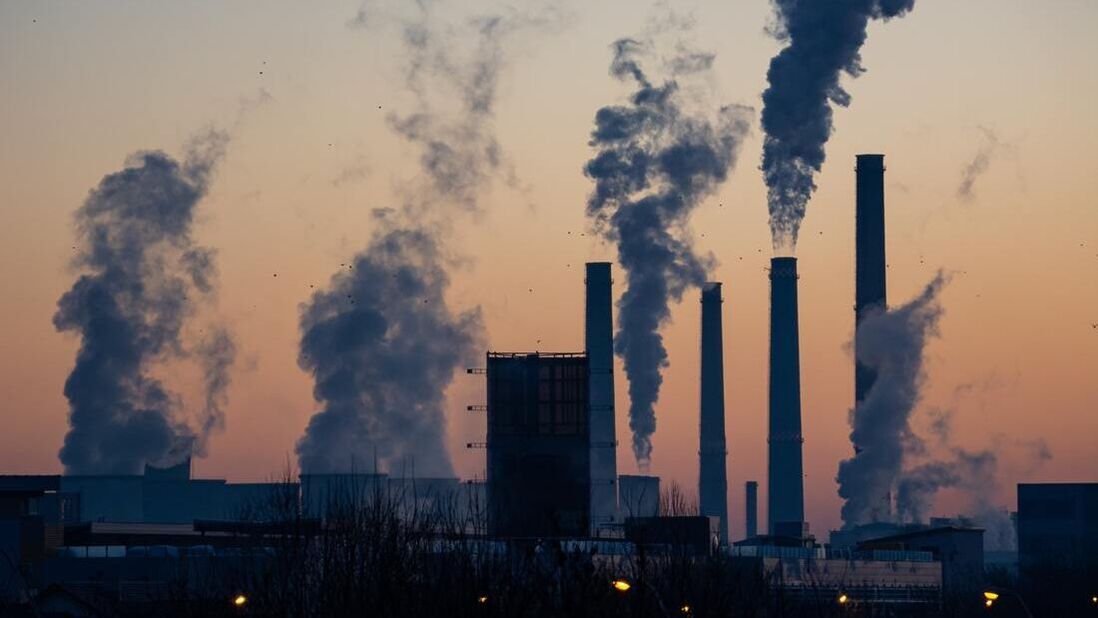A Commitment to Equity and Justice
We recognize that environmental justice and racial justice are one and the same. In order to attain environmental justice for all communities, we must address the systems that were designed to be exclusionary from their inception. We understand the necessity of solidarity with and support the communities in the fight for racial and environmental justice. Tennessee Environmental Council will continue to stand by marginalized communities.
We are making an active commitment towards these ideals in our 2025 Strategic Plan by holding ongoing policy and practice seminars centering on the environmental justice movement, implementing community-driven projects and initiatives, adopting a diversity and inclusion policy, and increasing engagement in underrepresented communities.
Tennessee Environmental Council will continue to reflect, grow, and teach others about the importance of diversity both in the environment and in our communities. We commit to using our platform and resources to uplift minority voices and promote social justice and equity for years to come. The time for change is now, and TEC is dedicated to help bring about this change.
We are making an active commitment towards these ideals in our 2025 Strategic Plan by holding ongoing policy and practice seminars centering on the environmental justice movement, implementing community-driven projects and initiatives, adopting a diversity and inclusion policy, and increasing engagement in underrepresented communities.
Tennessee Environmental Council will continue to reflect, grow, and teach others about the importance of diversity both in the environment and in our communities. We commit to using our platform and resources to uplift minority voices and promote social justice and equity for years to come. The time for change is now, and TEC is dedicated to help bring about this change.
Environmental Justice FAQs
BIPOC (Black, Indigenous, People of Color) communities throughout the state, the country, and the world experience the trauma of environmental racism on a daily basis. We developed this page to provide resources explaining the concepts of environmental racism and environmental justice. Through this page we want to amplify the voices of BIPOC and those individuals and organizations that have been working for decades to dismantle the systems of oppression in our county. Acknowledging racist policies and ideologies and learning about these systems is the first step for those of us in positions of privilege. With this knowledge we can work towards environmental and racial justice for all communities. True and meaningful environmental and racial justice will not happen overnight. What we see now in our communities and organizations is the fruit of seeds planted generations ago. As individuals, as an organization, and as a community we challenge ourselves to plant new seeds today, tomorrow, and into the future.
What is Environmental Racism?
Communities of color are disproportionately impacted by environmental hazards such as increased levels of pollution and higher rates of toxic landfills. Watch this interview with the "Father of Environmental Justice" Robert Bullard to learn more about the impact of environmental racism.
What is Environmental Justice?
Environmental justice is defined as "the fair treatment of people of all races, cultures, incomes and educational levels with respect to the development and enforcement of environmental laws, regulations and policies". Teaching for Tolerance, a project of the Southern Poverty Center whose mission is to help teachers and schools educate youth to be active participants in a diverse democracy defined the term. Read about the history of the environmental justice movement here.
Environmental Racism in Tennessee
One of the most overt examples of environmental racism occurred in Dixon, Tennessee. In a report titled Toxic Waste and Race at Twenty, Robert Bullard describes the situation in Dixon where the lone cluster of solid waste facilitates were situated near a predominately black community. Pollution from the waste facilitates was poisoning the Eno Road community for years until Sheila Holt-Orsted and her family filed and won a lawsuit against the County and City of Dickson. Read more about this lawsuit here.
Why Is Racial Justice Necessary for Environmental Justice?
The systems of oppression throughout our country and state are complicated and interwoven with our daily lives. Environmental climate injustice are results of racist injustice, thus it is impossible to address environmental racism without addressing and dismantling the underlying racist systems that allow and promote discrimination. Bronx Climate Justice North describes this relationship by saying “without a focus on correcting injustice, work on climate change addresses only symptoms, and not root causes.” Check out this article that describes ten ways which racial justice and environmental justice are directly linked.
What is Diversity? What is Inclusion? What is Equity?
We often think of focusing on and celebrating diversity as the finish line. In reality, this is far from the truth. Diversity is simply inviting individuals and communities to participate in a program or effort. When organizations invite BIPOC folks to join the organization's board of directors, this is diversity. Diversity is good, but it must be followed by inclusion and equity. Inclusion occurs when the voices of marginalized communities are valued and amplified. Organizations and communities are equitable when communities are empowered, diverse voices lead, and there are changes in the structure to allow for a redistribution of power. This article from YWCA Boston describes the difference in diversity, inclusion, and equity in greater detail.
Race is Difficult to Talk About. How Can I Have a Productive and Focused Conversation?
Although race is a sensitive topic to talk about, it doesn't have to be something we avoid. Our work can have a greater impact when we acknowledge and discuss how the intersection of race impacts our spaces. Discussions about race and racism may make us feel uncomfortable, but it will help us grow as individuals, as organizations, and as a community. When those of us in positions of privilege talk about race and racism, we should acknowledge that we may say the wrong thing, even if that is not our intent. This resource developed by the National Museum of African American History and Culture will help you learn to have productive and meaningful conversations about race and racism.
What is Environmental Racism?
Communities of color are disproportionately impacted by environmental hazards such as increased levels of pollution and higher rates of toxic landfills. Watch this interview with the "Father of Environmental Justice" Robert Bullard to learn more about the impact of environmental racism.
What is Environmental Justice?
Environmental justice is defined as "the fair treatment of people of all races, cultures, incomes and educational levels with respect to the development and enforcement of environmental laws, regulations and policies". Teaching for Tolerance, a project of the Southern Poverty Center whose mission is to help teachers and schools educate youth to be active participants in a diverse democracy defined the term. Read about the history of the environmental justice movement here.
Environmental Racism in Tennessee
One of the most overt examples of environmental racism occurred in Dixon, Tennessee. In a report titled Toxic Waste and Race at Twenty, Robert Bullard describes the situation in Dixon where the lone cluster of solid waste facilitates were situated near a predominately black community. Pollution from the waste facilitates was poisoning the Eno Road community for years until Sheila Holt-Orsted and her family filed and won a lawsuit against the County and City of Dickson. Read more about this lawsuit here.
Why Is Racial Justice Necessary for Environmental Justice?
The systems of oppression throughout our country and state are complicated and interwoven with our daily lives. Environmental climate injustice are results of racist injustice, thus it is impossible to address environmental racism without addressing and dismantling the underlying racist systems that allow and promote discrimination. Bronx Climate Justice North describes this relationship by saying “without a focus on correcting injustice, work on climate change addresses only symptoms, and not root causes.” Check out this article that describes ten ways which racial justice and environmental justice are directly linked.
What is Diversity? What is Inclusion? What is Equity?
We often think of focusing on and celebrating diversity as the finish line. In reality, this is far from the truth. Diversity is simply inviting individuals and communities to participate in a program or effort. When organizations invite BIPOC folks to join the organization's board of directors, this is diversity. Diversity is good, but it must be followed by inclusion and equity. Inclusion occurs when the voices of marginalized communities are valued and amplified. Organizations and communities are equitable when communities are empowered, diverse voices lead, and there are changes in the structure to allow for a redistribution of power. This article from YWCA Boston describes the difference in diversity, inclusion, and equity in greater detail.
Race is Difficult to Talk About. How Can I Have a Productive and Focused Conversation?
Although race is a sensitive topic to talk about, it doesn't have to be something we avoid. Our work can have a greater impact when we acknowledge and discuss how the intersection of race impacts our spaces. Discussions about race and racism may make us feel uncomfortable, but it will help us grow as individuals, as organizations, and as a community. When those of us in positions of privilege talk about race and racism, we should acknowledge that we may say the wrong thing, even if that is not our intent. This resource developed by the National Museum of African American History and Culture will help you learn to have productive and meaningful conversations about race and racism.
More Resources |
Indigenous Reading List |
|
You can get involved in working to dismantle the systems that support environmental racism by volunteering with local and national organizations and reading and listening to BIPOC. Below are just a few resources that may be helpful.
|
Podcasts
|



